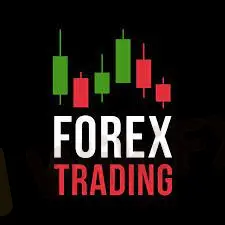简体中文
繁體中文
English
Pусский
日本語
ภาษาไทย
Tiếng Việt
Bahasa Indonesia
Español
हिन्दी
Filippiiniläinen
Français
Deutsch
Português
Türkçe
한국어
العربية
Forex Guru’s And Brokers Partnerships: The New Worrying South African Forex Industry Trend
Abstract:Since the introduction of forex into South Africa, Forex gurus have always appeared and dominated the space as trading is a skill that was highly sought after. In a third-world country where poverty is rampant, a lot of people go into trading because of these gurus and today South Africa has a vibrant forex industry. The issue, however, is this new type of partnership that we can see developing between new-age forex gurus and brokers. It highlights a dangerous part of the South African forex industry and if you are from there, it is best that you come to know what happens within these partnerships and why you must be weary.
Brokers are not a trader's best friend. Period. The whole business model of most brokers is to profit from losing traders. It is a well-known fact that 90% of traders lose in the market, so it is in the best interest of the broker to accumulate as many users of their service in order to make money. They have a number of marketing tools out there that they use to recruit users, however, their latest tool up their sleeve is the use of well know Forex Gurus to push their agenda.

Forex Gurus are supposed to act as the teachers who are helping people learn how to trade. Most of these gurus charge for trading courses so it is in their best interest to help traders grow. This partnership with brokers however exposes the truth of the courses they offer and the success of their students. These brokers offer these Gurus affiliate programs whereby these Gurus get a 40-50% slice of the profit a broker makes off of each trader who signs up to the partnered broker using the link provided by the Guru. This is worrying because the very Gurus who are meant to be teaching others to trade and succeed are now shifting their model to just getting as many people/students to sign up to the broker they are partnered with and continuously milk these people. It is no longer necessary for the guru to have successful students thrive.
What makes this worse is that the very money which these gurus earn from the partnership they show it off as market profit withdrawals from the broker. This just motivates more people to sign up for their trading course and just be funneled along to the slaughterhouse. Some of these gurus are not real traders at all. The trading result they post is demo accounts made by the brokers. There are many instances where students have complained that a guru gave one signal yet posted results of the opposite when the trade turned against them, which just shows how shady the whole broker/guru partnership can get.
It is best that you watch out for these traders. If you come up to a social media page of a forex guru who is heavily pushing the agenda of a broker it is best to watch out for this individual and be careful how you associate with them. The best thing to do is always use WikiFX when you are looking for a broker. This app is connected to every regulatory board worldwide so you are able to find the best regulated and verified brokers. They also keep a list of all the known scam brokers so you can already avoid the bad broker before you lose your money. For any broker that any person recommends, make sure to look them up on WikiFX.
Disclaimer:
The views in this article only represent the author's personal views, and do not constitute investment advice on this platform. This platform does not guarantee the accuracy, completeness and timeliness of the information in the article, and will not be liable for any loss caused by the use of or reliance on the information in the article.
Read more

Thinking of Investing? Read Must-Know Facts About Funding pips!
When you check the internet for Funding Pips, you'd be surprised to know it's filled with praise for Funding Pips but often lacks the real facts that traders need. Everything that seems too good to be true should always be verified first. It could be Fraud . So, we conducted research and collected several facts you must know about Funding Pips.

Oil Prices Stay Firm on Solid US Jobs Data
Oil prices stayed firm this week as the US labour department posted a better-than-expected payroll data in June 2025. Read this news in detail.

CryptoCurrency Regulations in India 2025 – Key Things You Should Know
Cryptocurrency has become a major trend in today’s world. Crypto Experts believe it’s the future, which is why many people are investing heavily in it. But before jumping in, it’s important for crypto enthusiasts to understand the key rules about cryptocurrency in India.

Truth About Angel One – Here’s What You Need to Know
Thinking about investing in Angel One? Wait! Know the essential things about the broker before Invest. It could be SCAM. Read, think, and invest .
WikiFX Broker
Latest News
Forex Hedging: Is It a Trader’s Safety Net or Just an Illusion?
OPEC+ members agree larger-than-expected oil production hike in August
Top Wall Street analysts are pounding the table on these 3 stocks
Stock futures fall after Trump team says tariffs will go into effect on Aug. 1: Live updates
FCA clarifies expectations on bullying, harassment and violence to deepen trust in financial service
Asia-Pacific markets mixed after Trump shifts goalposts on tariffs again
XS.com Expands Global Reach with Landmark Kuwait Launch
Asia-Pacific markets set for mixed open after Trump shifts goalposts on tariffs again
CNBC Daily Open: Most people don't start a political party after separation
Asia-Pacific markets mostly lower after Trump shifts goalposts on tariffs again
Currency Calculator


